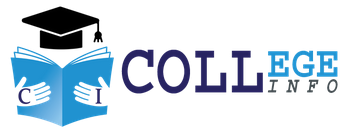
During the final year of the third year, the class council carries out an assessment in order to determine whether the pupil has achieved the objectives of the cycle in question . The result of this assessment is communicated to the student and his parents by the head teacher.
Depending on the report, the information provided and the results of the dialogue with the members of the educational team, the parents of the pupil or the adult pupil formulate requests for guidance.
Guidance requests are examined by the class council, which takes into account all the information gathered by its members on each student as well as the elements provided by the teaching team. The class council issues orientation proposals.
When these proposals comply with the requests , the headteacher takes his decisions in accordance with the proposals of the class council and notifies them to the parents of the pupil or to the adult pupil.
When the proposals do not comply with the requests , the head of the establishment, or his representative, receives the pupil and his parents or the adult pupil, in order to inform them of the proposals of the class council and to collect their observations. The headteacher present then takes the orientation decisions of which he informs the teaching team, and notifies them to the parents of the pupil or to the adult pupil. He may advise, in particular when the class council has recommended it, to the pupil and his legal representatives that he follow a refresher course.
Decisions that do not comply with requests are the subject of reasons signed by the head of the establishment . The motivations include objective elements that founded the decisions, in terms of knowledge, abilities and interests. They are sent to the parents of the pupil or to the adult pupil who informs the head of the establishment whether they accept the decisions or whether they are appealing them, within three working days of receipt of the the notification of these decisions thus reasoned.
In case of disagreement, they can ask to remain in the original class for a single year.
The orientation decision takes into account the general level of the student, his motivation for a particular path and his chances of success in the main subjects.
The orientation decision relating to the way in first, at the end of the second, is taken by the head of the establishment, at the end of the class council. If the proposal of the class council does not correspond to the wishes expressed by the pupil or his family, the latter are received by the head of the establishment to inform them and collect their comments. The headteacher makes the final decision.
Once engaged in the final cycle (première and terminale) of a route leading to a baccalaureate, each student will be able to access at the end of the first year, if he wishes, to the terminale class of the same route.
In the final year of high schools, the class council decides on the wishes of students to continue their studies in higher education in order to inform the head of the establishment called upon to issue an opinion on each of these wishes.
What recourse do parents have?
At the end of each cycle, if the orientation decision pronounced by the class council and confirmed after an interview with the headteacher does not comply with the requests of the families, the latter may choose to appeal . Families have three working days from receipt of notification of this decision. The student’s situation will then be examined by an appeal committee chaired by the academy inspector.
The establishment informs the families of the procedures for implementing this procedure, the date and place of the meeting of the appeal committee.
The head of the establishment sends the appeals committee the reasoned decisions as well as all the elements likely to enlighten this body. The parents of the pupil or the adult pupil who so request are heard by the commission. The minor pupil can be heard at his request with the agreement of his parents.
The appeal committee examines the student’s file and makes a final orientation decision which is communicated in writing to the family.
Who to contact for information and advice?
The school attended by your child is a privileged interlocutor. The homeroom teacher knows the education system and your child well from an academic perspective; he can therefore advise him usefully according to his motivations and possibilities.
The second person to contact is the National Education psychologist who regularly intervenes in colleges and high schools and who can be consulted individually by appointment.
Finally, the information and guidance centers ( CIO ) are at your disposal to plan individualized training courses with the families, whatever your child’s educational situation.
The youth information and documentation centers ( CIDJ ) welcome and inform young people free of charge on all subjects that interest them, in particular on career choices and professional life.

